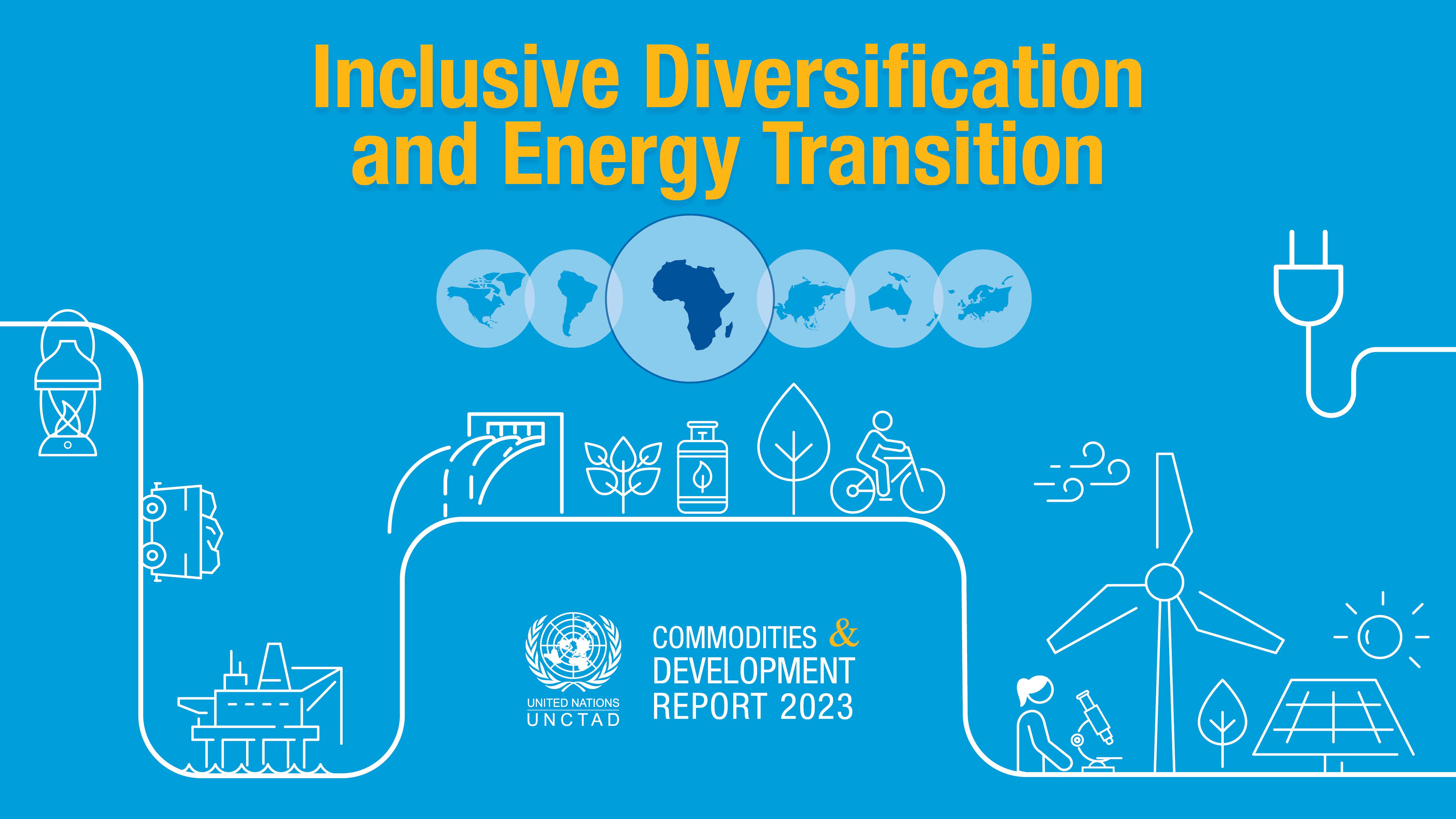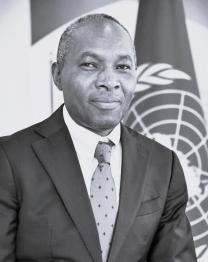
Commodity-dependent developing countries (CDDCs) have volatile incomes and slow growth in productivity. Their limited range of commodities exported also affects public revenue and the potential for investing in sustainable development.
If CDDCs are to achieve the Sustainable Development Goals (SDGs) by the deadline of 2030 in this increasingly uncertain global economic and political environment, they will need to become more resilient. Resilience implies that they have to move along value chains and diversify production to generate a greater variety of exports. Diversification not only insures against future market shocks, but also fosters economic growth and drives structural transformation. Economic diversification can either be horizontal or vertical. Horizontal diversification typically broadens the range of production and exports. Vertical diversification can involve greater variety in a sector’s value chain, such as refining crude oil to produce gasoline or petrochemicals.
However, CDDCs now have to diversify through low carbon paths in the context of climate change and energy transition. Historically, economic diversification has relied on the extensive use of fossil fuels. From 1995 to 2019, on average, diversification of one new export is associated with adding 3.1 tons of CO2 equivalent of greenhouse gas in the atmosphere. CDDCs need to make growth less carbon-intensive without compromising their economic development.
While diversification brings long-term economic benefits, producing a wider range of more sophisticated products can increase inequalities within countries if not accompanied by inclusiveness policies. From 1998 to 2018, on average, a one per cent increase in the number of products exported by a country was associated with an increase of almost half a point in the ratio of the shares of income of the 10% richest and the 40% poorest in an economy. Thus, CDDCs, while moving along value chains and increasing the range of products, need to take active redistribution measures.
CDDCs should leverage untapped potential in renewable energy sources to explore new energy markets and green products that can help create new jobs, boost incomes and reduce inequalities. The global community needs to play a more active role in providing the support needed for green industrial policies in commodity-dependent developing countries to succeed. CDDCs need access to affordable and sufficient investment financial services and technologies to implement active productive policies and mitigate the climate-related risks associated with climate change towards making their economic structures more diversified, resilient and prepared for a low-carbon future.
Commodities and Development Report 2023
UNCTAD's Commodities and development report 2023 critically examines various issues including inclusive diversification, energy transition and green industrial policies.
Regarding Africa, several topics such as economic diversification, inequality, green industrial policies are of interest.
Objective
The main objective of this webinar was to inform participants about the key findings and messages of the UNCTAD's Commodities and Development Report 2023.
It was also an opportunity to receive feedback on the report and seek for guidance of the issues that could be explored in the forthcoming Reports..
Participants were from the United Nations Economic Commission for Africa (UNECA) member staff, diplomatic missions, academia, and international institutions based in Addis Ababa and other subregional offices of UNECA.
This webinar was conducted in English (without translation) online via the Zoom platform.

Miho Shirotori is the Acting Director of the Division on International Trade and Commodities (DITC) of the United Nations Conference on Trade and Development (UNCTAD).
Miho also leads a team of experts that assess how trade agreements, trade in services, and the creative economy contribute to inclusive and sustainable economic diversification.
Her expertise includes “equitable” trade in agriculture for least developed countries, low-income countries, and net food-importing developing countries.
Miho represents UNCTAD in global conferences and various inter-agency activities, including the UN inter-agency task force that monitors the implementation of the Addis Ababa Action Plan for the Financing for Development.
Dr. Stephen Karingi is currently the Director, Regional Integration and Trade Division of the Economic Commission for Africa. Before joining the United Nations, Dr. Karingi was a Senior Analyst and the Head of Macroeconomics Division in the Kenya Institute for Public Policy Research and Analysis (KIPPRA). Before KIPPRA he served as a Lecturer of Economics at Egerton University.
Dr. Karingi was a recipient of the then Zolt-Gilburne Visiting Fellowship of the International Tax Programme of the Harvard Law School in 2001 and the winner of the 2013 Alan A. Powell Award in recognition of his contribution to Global Economic Analysis issues from an African perspective. Dr. Karingi served as a member of the High-Level Board of Experts on the Future of Global Trade Governance. He is presently serving in the African Continental Free Trade Area (AfCFTA) Trade and Industrial Development Advisory Council; and also, a member of the High-Level Group on Trade in the context of EU-Africa relations. He is in the Editorial Board of the Journal of African Trade.

Clovis Freire Junior is Head a.i. of Commodities Branch, and Chief of Commodity Research and Analysis Section, of the Division on International Trade and Commodities of UNCTAD in Geneva. He is an Economist specialized in economic diversification and strategies for building productive capacities in developing countries. His work supports the structural transformation and sustainable development of commodity-dependent developing countries.
He has over 20 years of work experience in the United Nations in programmes related to commodity dependence, least developed countries, technology and innovation for development, and disaster risk reduction. He holds a degree in Computer Engineering from the Technological Institute of Aeronautics (ITA), Brazil, a Master’s degree in Computer Sciences from the University de Brasília (UnB), an MBA in Strategic Management of Information Systems from the Fundação Getúlio Vargas (FGV), Brazil, and a PhD in Economics from the Maastricht University, in Maastricht, the Netherlands.
Taro Boel is currently an Associate Economic Affairs Officer working in the Commodities Branch, Division on International Trade and Commodities of UNCTAD.
He has been involved in a project designed to foster local content in the oil and mining sector through developing linkages between the Transnational companies and the local private sector especially in Angola, Chad, Equatorial Guinea, and the Republic of Congo. He has also conducted research on the access of smallholder farmers to the international markets (UNCTAD Commodities and Development Report 2015) as well as the contribution of diamonds revenues to economic development in Botswana and Sierra Leone (UNCTAD Commodities and Development Report 2017).
Previously, he worked for the United Nations Economic Commission for Africa (UNECA) based in Addis Ababa (2008-2012). During this period, he contributed to many substantive reports, including the Economic Report on Africa 2009 “Developing African Agriculture Through Regional Value Chains”, the “Sustainable Development Report on Africa” and the Seventh African Development Forum on Climate Change. He penned and presented a paper titled “risk management strategies and labour productivity in rural Africa” at the Center for the Study of African Economies (CSAE) located at Oxford University in the United Kingdom.
He graduated in development economics from the “Université d’Auvergne” in France and successfully passed the National Competitive Examination (NCE) of the United Nations while he was an external collaborator with the International Labour Organization (ILO) in Geneva.

Krishna Chikhuri is the Senior Agricultural Policy and Programme Development Officer at the Ministry of Agro-Industry & Food Security, Republic of Mauritius. He has over 20 years of experience in the field of agricultural policy planning and analysis. His work includes providing advice to the Ministry in the formulation of agricultural policies and he is specialized on agricultural trade issues. He represents the Ministry in technical meetings involving agricultural trade matters and is involved in all trade negotiations as well as submissions to the World Trade Organization. He has been recently involved as lead negotiator on agriculture for Mauritius in the Economic Partnership Agreement negotiations with the European Union.Krishna has published several papers in peer reviewed journals and is also a frequent reviewer in academic journals in the field of agriculture policy such as the International Journal of Social Economics. He is a member of the Africa Growth & Development Policy Modelling Consortium (AGRODEP). His professional experience includes consultancies in several assignments for the Food and Agriculture Organization (FAO), United Nations Economic Commission for Africa (UNECA), and African Development Bank (AfDB) among others.He holds a PhD in Economics as well as an MSc in Applied Economics.
Edith Kagwera is an independent expert in Trade Policies and Trade Laws, Food Systems and Value Chains development. She has worked for various organisations including public, private and international organisations on economic and food system development related aspects, and among many, she worked for UNECA along the development of a report on Climate- resilient, Green Value Chains in East Africa, worked for UN Food and Agriculture Organization (FAORW) under the Integrated Country Approach (ICA) Program which focused on youth integration across agriculture value chains, and also served as a Market Development Advisor at SNV Rwanda (Netherlands Development Organization).
Edith is an economist by profession and holds a master’s degree in international Trade Policy and Trade Law from Lund University(Sweden) and a Bachelor of Science degree in Agribusiness and Agricultural Economics from the University of Rwanda.
Elena Antoni is currently acting as Trade and Environment Specialist for UNECA’s African Trade Policy Center, where she coordinates a joint UNECA and UNCTAD project focused on integrating environmental considerations into countries’ implementation of the African Free Trade Area. Before her appointment with UNECA, she co-led the Policy Impact work of a multi-partner research coalition on biodiversity and trade, and worked with the UN Environment Programme as Policy Analyst.
Elena earned a B.A. in Political Science from the University of Mannheim, Germany, and a MPhil Degree in Environmental Law and Economics from the University of Cambridge, UK.






